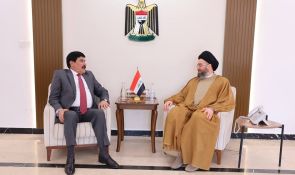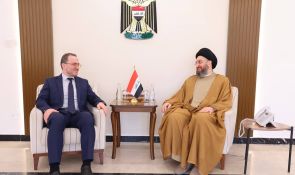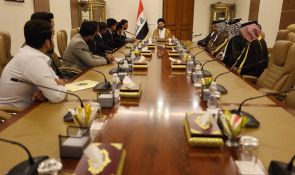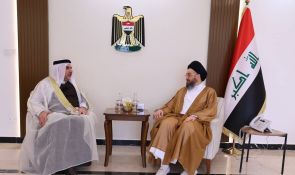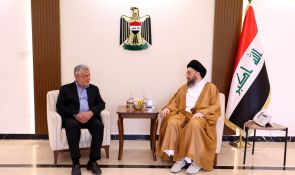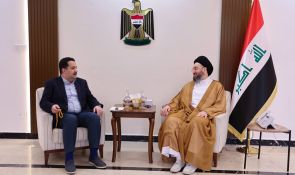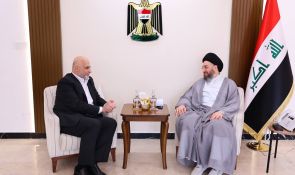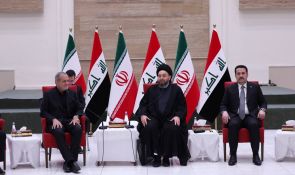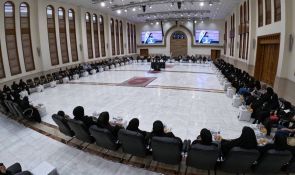Sayyid Ammar Al Hakim: We Need Moderates in All Arenas For They Are the Most Fit to Devise a Political Equation that Preserves Iraq
Sayyid Ammar Al Hakim, head of the Islamic Supreme Council of Iraq, stressed the Iraqi society’s need for moderates in all arenas, explaining that the moderates are the most fit to devise a political equation that preserves Iraq. His eminence indicated that the efforts to be made in the context of a unified Iraq would be much less than those needed should Iraq divide into several states God forbids. He highlighted the need for historic decisions that the advocates of extremism cannot take, calling for unity and awareness of dangers. His eminence also pointed out that Iraqis have no on but each other, urging the Iraqi elites to play their role according to a defined vision and clarifying that moderation does not mean submission or weakness.
This came when his eminence was heading the diwan of Baghdad at this office in Baghdad on Saturday, February 28, 2015, in the presence of a large group of Iraqi syndicate members, professionals and businessmen.
His eminence reaffirmed the importance of the project of a fair and modern state, insisting that the project should be integrated and makes everyone feel their role and rights. He called upon society to take its role farther, outside the state institutions, highlighting the distinctive role that the syndicates can play.
As for the matter of national reconciliation, Sayyid Ammar Al Hakim mentioned the questions that come with any talk about reconciliation: who is it with? what are the tools? what are the limits?. He insisted that reconciliation needs that everyone meets halfway, as there could not be any reconciliation between a victorious party and a defeated one. Therefore, his eminence called on everyone to establish a vision for reconciliation that includes what each party should offer the other. There would be no reconciliation if one party is reassured and the other irritated, there should be no emotions in reconciliation for the victory of everyone means the loss of some of the demands of each party.
His Eminence replied to the interventions and questions of the public explaining that ISIS is an abnormal case that must be terminated, pointing at the same time to the post-ISIS stage and to the need to address the community gap and to turn the page of ISIS, for the security remedies alone are not enough, rather ISIS must be segregated from its public and brought back to the patriotic line. He also pointed to the importance of taking advantage of the fall of oil prices in activating the alternatives, depending less on oil and putting an end to the Rentier state phenomenon, i.e. to turn the challenge into an opportunity for development, taking as examples similar experiences of other countries that suffered too much until they ended up in being almost self-sufficient.
On the other hand, his Eminence expressed his opposition to the peasant’s land ownership and the contractual relation between the peasant and the land, because according to him, such relation makes the peasant less attached to his land while the citizens must be fixed in their land conforming to law, and even the Sharia attributes the land’s ownership to those responsible for its reclamation, not to mention the need to provide the peasants with subsidies such as fertilizers, water, electricity and modern machinery to increase and improve the production and to minimize the need for irrigation water.
Moreover, Sayyid Ammar al-Hakim said that what happened at the Mosul museum was a stab to the human civilization, and that like all the other laws, the law on the civil society organizations returned to the government once the previous session finished, stressing the importance of keeping the universities away from politicization and disputes while keeping the political culture within the academic milieu because the students are the leaders of tomorrow.
Here he underlined the need for schools, hospitals, theaters and cultural centers in Baghdad and the need to comply with the law, to support the industrial and agricultural sectors and to activate the initiatives, as well as to complete the legislations including the party law and the social justice law.


